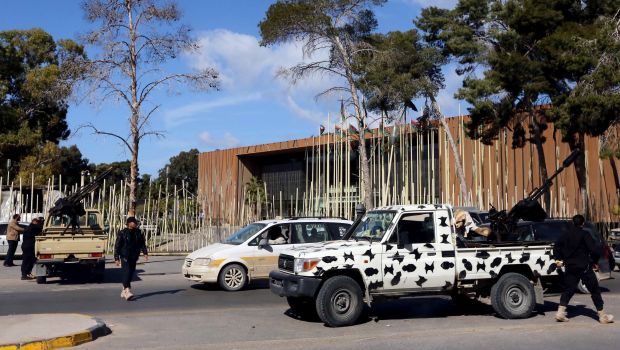
File photo of Military Council of Tripoli forces deploying next to the General National Congress (GNC) in Tripoli, Libya, on March 3, 2014. (AFP PHOTO / MAHMUD TURKIA)
Tripoli, Reuters—Jordan’s ambassador to Libya was kidnapped on Tuesday morning after masked gunmen attacked his car and shot his driver, a spokesman for Libya’s foreign ministry said. The driver survived the attack and was in hospital, spokesman Said Laswad said.
A Jordanian foreign ministry source said they believed the incident occurred as Ambassador Fawaz Al-Itan was leaving his house.
Kidnappings have become commonplace in Libya and abductors frequently target foreign officials. Since the start of the year five Egyptian diplomats, a Tunisian official and a South Korean trade official have been abducted.
Random acts of violence are also on the rise. In December a US teacher was shot dead in Benghazi, and in January a British man and a New Zealand woman were shot execution-style on a beach in the west of the country.
Libya’s weak government has been unable to disarm former rebels who fought against deposed leader Muammar Gaddafi in 2011, and parliament has deep internal divisions that further reduce Tripoli’s ability to exert authority. Its prime minister-designate, Abdallah Al-Thinni, resigned on Sunday.
Tribal groups, militias and even local citizens frequently resort to road blockades and, more seriously, to shutting down the OPEC member’s vital oil facilities as a negotiating tactic. The bulk of the country’s oilfields and some major oilfields have been shut down by federalists in the east and tribes in the west either demanding more rights or demonstrating against parliament.
